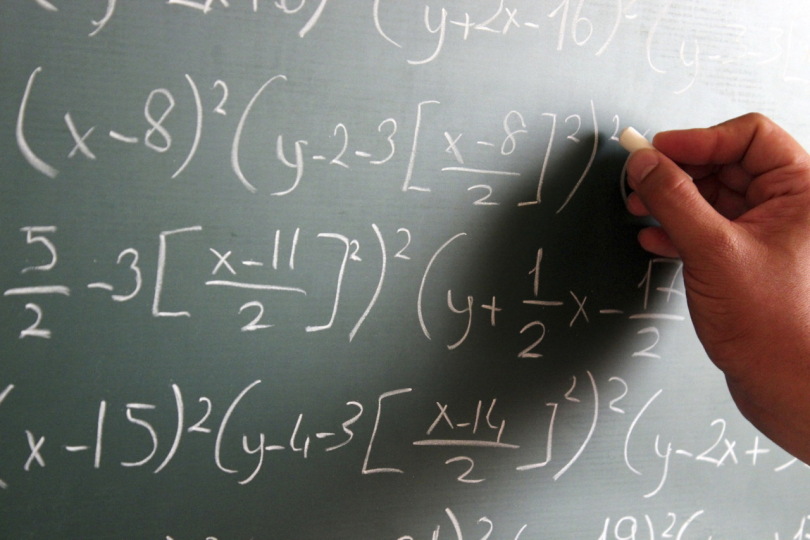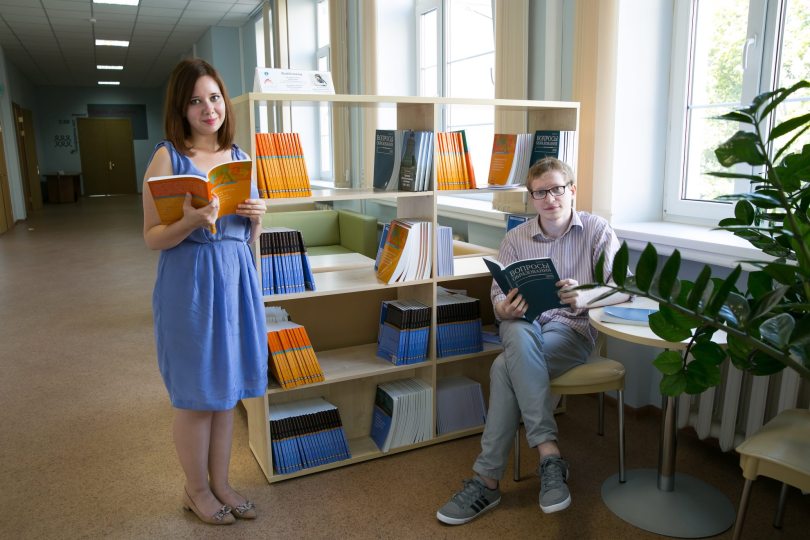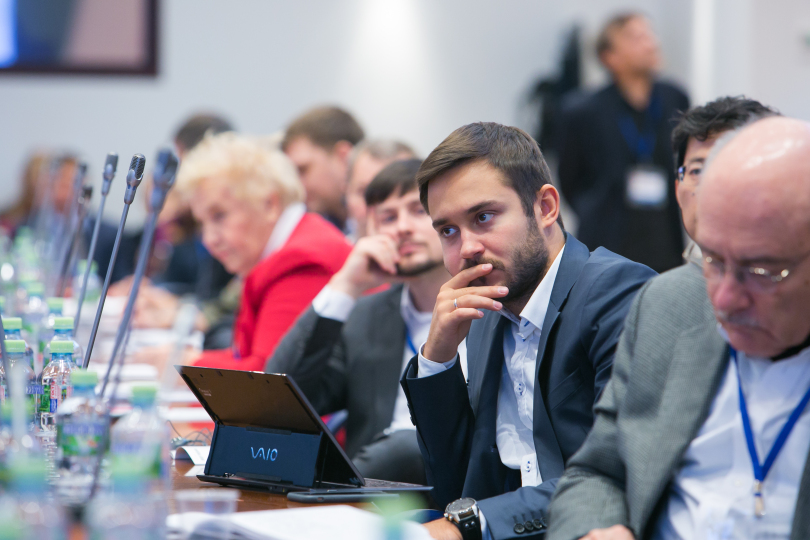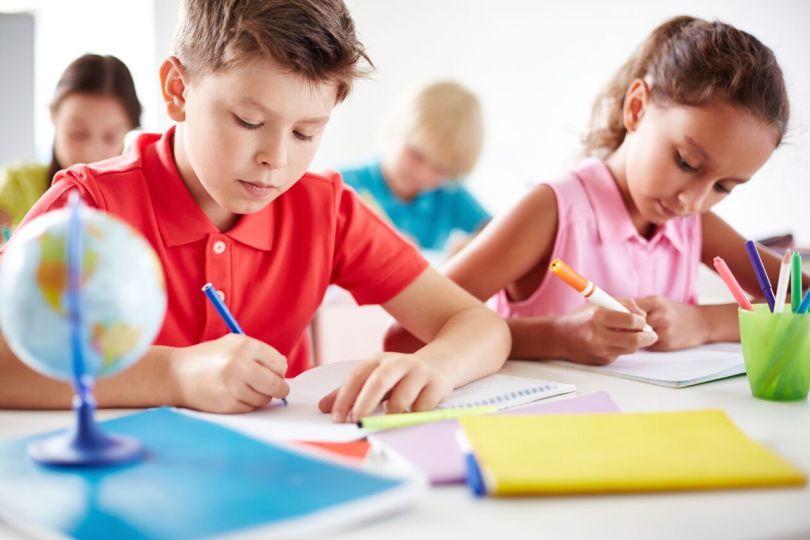
Why Maths at Schools Shouldn’t Be Simplified
A good knowledge of algebra and geometry helps schoolchildren to solve some other types of tasks, including applied ones. These are the findings made by researchers from HSE, Stanford, and Michigan State University in a joint study.

Where Teachers, Principals, and Education Researchers Learn
Portrait galleries of renowned scientists, research laboratories right next to large classrooms and auditoriums, educational programmes for students and principals – these are just a few of the things discussed during an excursion around the HSE Institute of Education as part of the Open House project. Victoria Malova, a second-year student in the Evidence-Based Education Policy master’s programme, and Denis Federiakin, a second-year student in the Measurement in Psychology and Education master’s programme, served as the tour guides for the day.

Higher Education Conference Draws to a Close
From October 20-22, 2016, the Russian Association of Higher Education Researchers held its 7th International Conference ‘University between Global Challenges and Local Commitments’ at HSE Moscow. This annual event brings together researchers and educators who are interested in higher education development to discuss challenges and goals facing universities and their stakeholders (students, faculty, administrators, graduates etc.).
-%D0%B2%D1%83%D0%B7-%D1%81%D1%80%D0%B5%D0%B4%D0%B0%20%D0%B4%D0%BE%D0%B1%D1%80%D0%BE%D0%B6%D0%B5%D0%BB%D0%B0%D1%82%D0%B5%D0%BB%D1%8C%D0%BD%D0%B0%D1%8F.jpg)
Academic Environment Can Affect Student Honesty
Disciplining students for a variety of activities, such as downloading papers from the internet, engaging in plagiarism or cheating on exams may not work when academic dishonesty is so commonplace at university that even top performers tend to follow the crowd in this. Indeed, academic misconduct can be self-perpetuating: if a student gets away with cheating once, they are more likely to cheat next time, according to Natalia Maloshonok.
Higher Education Conference Set to Feature Wide Variety of Topics
On October 20-22, 2016, the Russian Association of Higher Education Researchers will hold its 7th International Conference in Moscow. This annual event brings together researchers and educators who are interested in higher education development in a forum to discuss challenges and goals facing universities and their stakeholders (students, faculty, administrators, graduates etc.).
Recent HSE Conference Offers Seminar on Education and Development
On September 16, the Centre for Cultural Sociology and Anthropology of Education (HSE Institute of Education) held a seminar entitled ‘Trajectories and Educational Choice’ that brought together experts to discuss a number of topics related to educational expansion and the relationship between schooling and economic development.
'HSE is the Best Choice for Those Who Want to Carry out Research in Education'
Ivan Smirnov graduated from his master’s programme in Paris and hadn’t really considered coming back to Russia. But that was before he learned about the full-time advanced doctoral programme at HSE. The programme has some unique advantages among Russian programmes, which make it comparable to European PhDs.
Taking Education from the 19th Century to the 21st
For the first time ever, the leaders of education studies centres from some of the world’s leading research universities met at the HSE Academic Centre in Pushkin, Russia. At the meeting, the researchers, along with a representative from OECD, discussed how education studies departments should change to meet the global challenges that face the sphere of education.
International Summer School on Higher Education Research
The IV International Summer School on Higher Education Research, which was devoted to ‘Higher Education, Society and State’, was held June 4-10 in St. Petersburg. Organized jointly with the China Institute for Educational Finance Research at Peking University, the Summer School brings together senior and junior scholars in the field of higher education research; it aims to facilitate the exchange of ideas, enhance research quality, and foster the integration of early-career researchers into the international academic community.

Children of Richer Parents Do Better at School
The more books in the family and the richer and more educated the parents, the more likely it is that the children will do well at school. Elena Kardanova, Inna Antypkina and Alina Ivanova, researchers at the Centre of Education Quality Monitoring of the HSE Institute of Education, presented their paper 'The Progress of Grade One Students in the First Year of School: Perpetuating Inequality in Primary Education' at the HSE's XVII April Conference.

